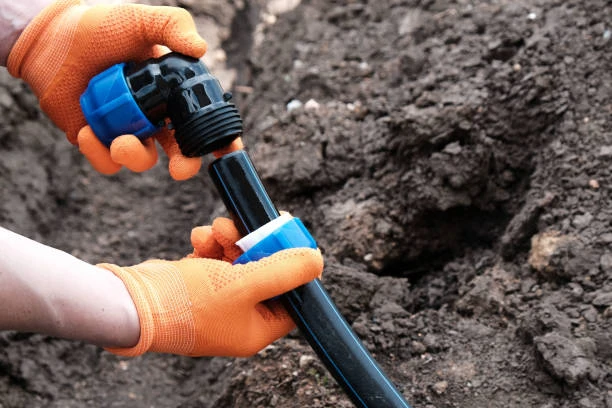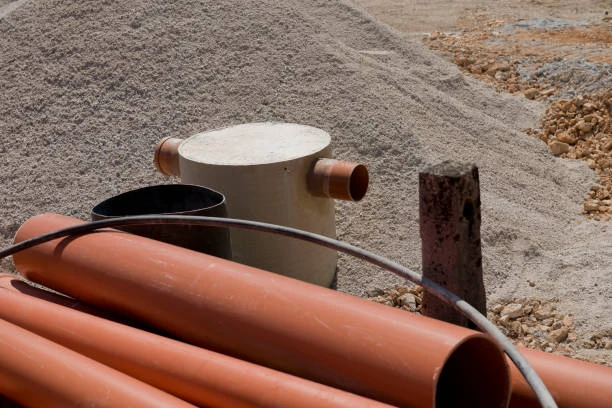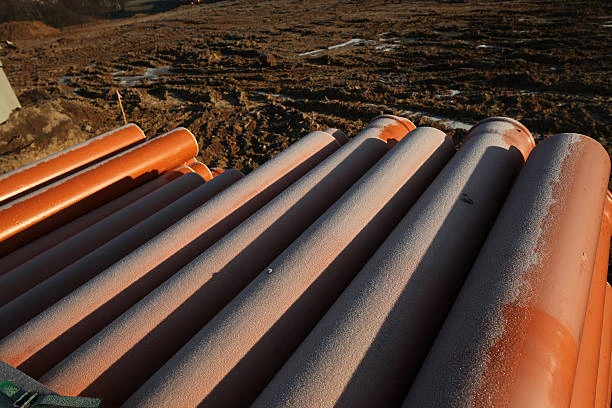Introduction
HDPE (High-Density Polyethylene) pipes and fittings have become an essential component of modern infrastructure. Their strength, durability, and environmental benefits make them a preferred choice for various applications, from water supply systems to industrial piping. As cities grow and industries expand, the need for reliable and long-lasting piping solutions becomes more critical. In this article, we’ll dive deep into the world of HDPE pipes, their benefits, applications, and how they compare with PVC pipes and fittings, another popular option in the industry.
What are HDPE Pipes and Fittings?
HDPE pipes are made from high-density polyethylene, a strong, flexible, and lightweight material. This makes them an ideal choice for piping systems that need to withstand high pressures and harsh conditions. HDPE pipes and fittings are used in a variety of applications, from water supply and sewage systems to industrial piping. Their popularity stems from their durability, ease of installation, and low environmental impact.
Benefits of HDPE Pipes and Fittings
One of the primary reasons for the widespread use of HDPE pipes is their durability. These pipes are resistant to corrosion, chemicals, and environmental stress, making them ideal for both underground and exposed installations.
- Durability and strength: HDPE pipes can handle high pressure and harsh environmental conditions without deteriorating. This makes them an excellent choice for long-term infrastructure projects.
- Flexibility and easy installation: Due to their flexibility, HDPE pipes can be bent without breaking, allowing for easier installation, even in uneven terrain. This flexibility reduces the need for joints and fittings, which lowers installation costs.
- Corrosion resistance and environmental benefits: Unlike metal pipes, HDPE pipes do not rust or corrode when exposed to water or chemicals, which prolongs their lifespan and reduces maintenance costs.
Key Applications of HDPE Pipes
HDPE pipes are widely used across several industries, thanks to their versatility. Some of their primary applications include:
HDPE in Agricultural Irrigation
HDPE pipes are the preferred choice for agricultural irrigation systems due to their flexibility and resistance to harsh weather conditions. Their ability to withstand high water pressure makes them ideal for long-distance water transport, and their smooth inner surface reduces friction, improving water flow efficiency.
Use in Urban Plumbing and Infrastructure
As urbanization increases, the need for reliable and durable plumbing systems becomes essential. HDPE pipes are increasingly used in urban infrastructure due to their long lifespan and resistance to environmental factors. They are widely used in sewage systems, stormwater management, and potable water supply systems.
PVC Pipes vs HDPE Pipes
While both PVC (Polyvinyl Chloride) and HDPE pipes are widely used in the piping industry, they have some significant differences that influence their suitability for various applications.
- Material composition: PVC pipes are made from polyvinyl chloride, which makes them rigid and strong, whereas HDPE pipes are more flexible and lightweight.
- Durability: HDPE pipes are more resistant to impact and environmental stress, making them a better choice for underground installations where soil movement can occur.
Cost Comparison Between PVC and HDPE
When comparing costs, PVC pipes may have a lower initial cost, but HDPE pipes often prove to be more cost-effective in the long run due to their lower maintenance requirements and longer lifespan. For industries seeking long-term investments, HDPE pipes provide better value.
Installation and Maintenance of HDPE Pipes
HDPE pipes are relatively easy to install due to their lightweight and flexible nature. They can be installed using various methods, including trenchless technology, which reduces the environmental impact and lowers labor costs.
Advantages of Fusion Welding
Fusion welding is a method used to join HDPE pipes seamlessly. This process involves heating the ends of the pipes and fusing them together, creating a joint that is as strong as the pipe itself. This eliminates the need for additional fittings and reduces the chances of leaks, ensuring better performance over time.
Environmental Impact of HDPE Pipes
HDPE pipes are known for their environmental benefits. They are fully recyclable and have a low carbon footprint compared to other piping materials. The energy required to produce and transport HDPE pipes is significantly lower than that for metal or concrete pipes. Additionally, their long lifespan means fewer replacements and less waste over time.
Common Challenges with HDPE Pipes and Fittings
While HDPE pipes offer numerous benefits, there are some challenges associated with their use. One common issue is handling during installation, as HDPE pipes can be sensitive to scratches and impact during transport. Additionally, prolonged exposure to UV light can weaken the material, which is why HDPE pipes used in above-ground installations often require UV-resistant coatings.
The Growing Global Demand for HDPE Pipes
The demand for HDPE pipes is growing globally, driven by infrastructure developments in both developed and developing nations. In countries like India and China, rapid urbanization and industrialization have created a need for reliable and cost-effective piping solutions.

HDPE in Renewable Energy Projects
As the world shifts towards renewable energy, HDPE pipes are increasingly being used in wind and solar farms. They are used in underground cabling systems and water transport, contributing to the sustainability of these projects.
Future Trends in HDPE Pipe Manufacturing
The future of HDPE pipe manufacturing looks promising, with advancements in material science and technology. Manufacturers are focusing on creating even stronger, more durable pipes that offer enhanced performance while reducing the environmental impact. Innovations like bio-based HDPE are also being explored, which could further reduce the carbon footprint of these products.
Conclusion
HDPE pipes and fittings are a cornerstone of modern infrastructure, offering durability, flexibility, and environmental benefits. Whether for agricultural irrigation, urban plumbing, or industrial applications, HDPE pipes provide reliable and long-lasting solutions. With the global demand for infrastructure development on the rise, HDPE pipes will continue to play a crucial role in building the cities of tomorrow.
FAQs
- What are the main benefits of using HDPE pipes and fittings?
HDPE pipes offer excellent durability, flexibility, and resistance to corrosion, making them ideal for various applications, including water supply, drainage, and industrial use. - How do HDPE pipes compare to PVC pipes?
While both are popular choices, HDPE pipes are more flexible and durable, especially for underground installations, whereas PVC pipes are more rigid and may be more affordable in the short term. - Are HDPE pipes suitable for large-scale infrastructure projects?
Yes, HDPE pipes are widely used in large-scale projects due to their strength, long lifespan, and ability to withstand high pressures. - How long do HDPE pipes last?
HDPE pipes can last up to 50 years or more, depending on the installation and environmental conditions. - Can HDPE pipes be recycled?
Yes, HDPE pipes are fully recyclable, making them an environmentally friendly choice for piping solutions.


















